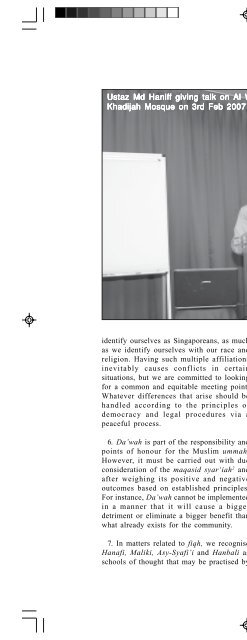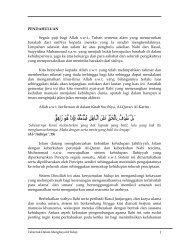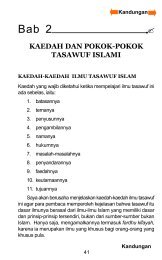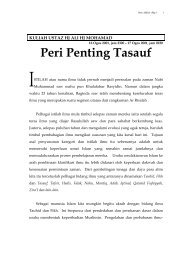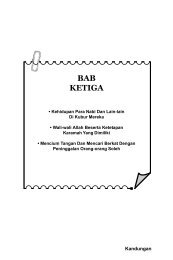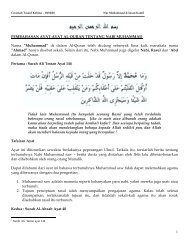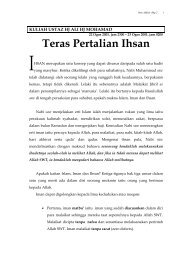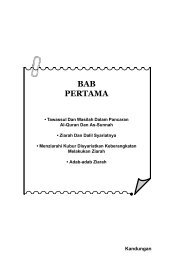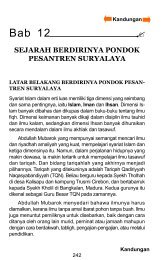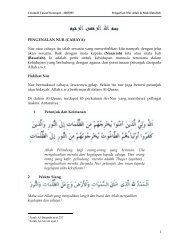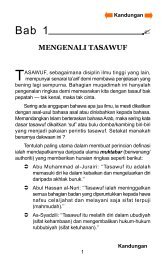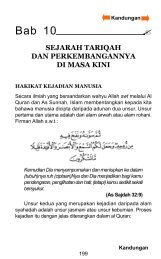inab3 cover front.psd - Khadijah Mosque
inab3 cover front.psd - Khadijah Mosque
inab3 cover front.psd - Khadijah Mosque
You also want an ePaper? Increase the reach of your titles
YUMPU automatically turns print PDFs into web optimized ePapers that Google loves.
Ustaz Md Haniff f giving talk on Al Wala’<br />
Wal Bara’ at<br />
<strong>Khadijah</strong> <strong>Mosque</strong> on 3rd Feb 2007<br />
identify ourselves as Singaporeans, as much<br />
as we identify ourselves with our race and<br />
religion. Having such multiple affiliations<br />
inevitably causes conflicts in certain<br />
situations, but we are committed to looking<br />
for a common and equitable meeting point.<br />
Whatever differences that arise should be<br />
handled according to the principles of<br />
democracy and legal procedures via a<br />
peaceful process.<br />
6. Da’wah is part of the responsibility and<br />
points of honour for the Muslim ummah.<br />
However, it must be carried out with due<br />
consideration of the maqasid syar‘iah 2 and<br />
after weighing its positive and negative<br />
outcomes based on established principles.<br />
For instance, Da’wah cannot be implemented<br />
in a manner that it will cause a bigger<br />
detriment or eliminate a bigger benefit than<br />
what already exists for the community.<br />
7. In matters related to fiqh, we recognise<br />
Hanafi, Maliki, Asy-Syafi’i and Hanbali as<br />
schools of thought that may be practised by<br />
Muslims in Singapore. Similarly we recognise<br />
the views of the respected and mujtahid<br />
ulama of the Ahlus Sunnah Wal Jemaah.<br />
However, for official matters, Asy-Syafi’i is<br />
the official mazhab (school of thought).<br />
8. In matters related to aqidah, we<br />
recognise the views and the principles of<br />
the Salaf. We also acknowledge the mazhab<br />
of Abu Musa Al-Asy’ari and Abu Mansur<br />
Al-Maturidi as part of Ahlus Sunnah Wal<br />
Jemaah.<br />
9. Khilaf (differences in opinions) may<br />
occur in issues that are supported by qat’ii<br />
nas (definite nas). In matters of aqidah,<br />
ibadah and social relationships which are<br />
not supported by qat’ii nas, it is acceptable<br />
to have khilaf.<br />
10 Khilaf in matters not supported by nas<br />
may be accepted, as long as such views are<br />
supported by evidence that are consistent<br />
with Usul Fiqh. The type of khilaf that<br />
cannot be accepted are those that do not go<br />
Masjid <strong>Khadijah</strong> 51


